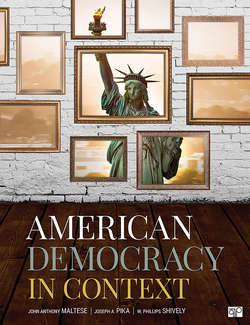Читать книгу American Democracy in Context - Joseph A. Pika - Страница 142
На сайте Литреса книга снята с продажи.
Campus Speech
ОглавлениеIn the 1980s and 1990s, many public colleges and universities implemented speech codes that were designed to combat discrimination and harassment on campus. These codes were intended to prohibit abusive language that attacks individuals because of characteristics such as their race, ethnic origin, religious beliefs, or sexual orientation.
Some argue that racist and sexist speech stifles intellectual exchange and that such codes actually increase free speech by removing intimidation. Others denounce such restrictions as “political correctness” and argue that the codes reflect a political agenda. For example, some conservative Christians have complained that codes have been used to vilify their views. When Roger Williams University in Rhode Island temporarily froze funding for a college Republican newspaper that ran a series of articles condemning homosexuality, Jason Mattera, the editor of the paper at the time, said, “You’re not automatically a bigot if you don’t agree with [homosexuality]. What they’re essentially doing is silencing the only conservative voice here on campus.”69 Based on such concerns, President Trump signed an executive order in March 2019 to protect free speech on college campuses, although some—such as the University of California system—called Trump’s proposal “misguided and unnecessary.”70
The Supreme Court has not directly ruled on the constitutionality of campus speech codes, but some lower courts have. For example, a federal court struck down a University of Michigan code in 1989 that banned “any behavior, verbal or physical, that stigmatizes or victimizes an individual on the basis of race, ethnicity, religion, sex, sexual orientation, creed, national origin, ancestry, age, marital status, handicap, or Vietnam-era veteran status.”71 An “interpretive guide” of the code issued by the University Office of Affirmative Action included examples of conduct that could be sanctioned. One example read, “A male student makes remarks in class like ‘Women just aren’t as good in this field as men,’ thus creating a hostile learning environment.” A graduate student in biopsychology, who was studying the biological bases of individual differences in personality traits and mental abilities, challenged the law. He feared that discussion of controversial theories about biologically based differences between the sexes and races might lead to sanctions against him. Although the court struck down the University of Michigan’s code on the grounds that it was overly broad and too vague, other campus codes still stand.
